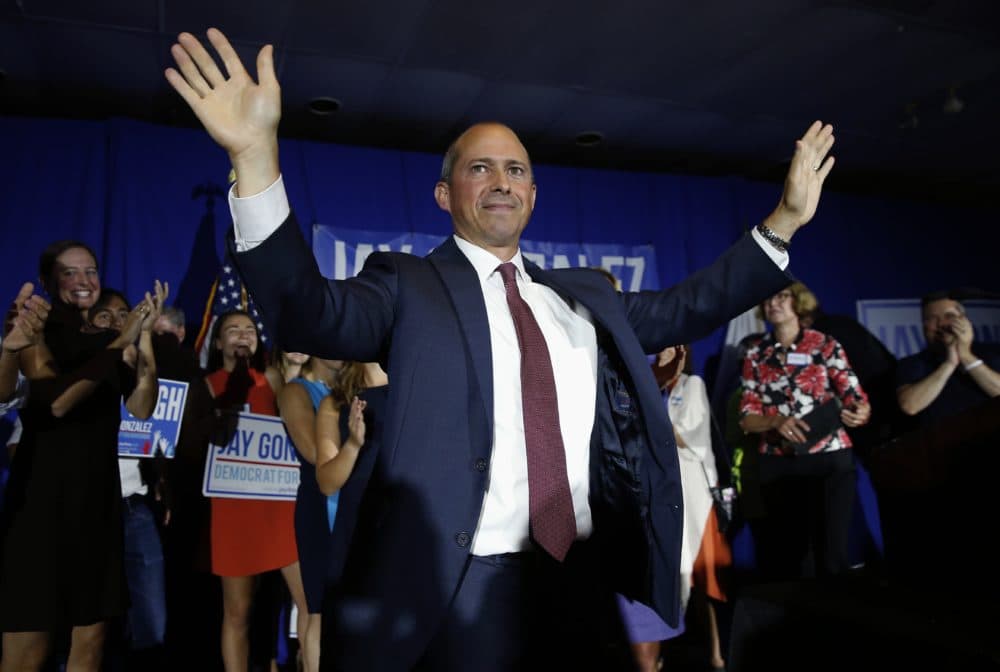Advertisement
Gonzalez Endowment Tax Proposal Gets Harsh Response From Higher Education Community
Resume
Leaders in higher education lobbed criticisms at Democratic candidate for governor Jay Gonzalez over his proposal to tax colleges and universities with large endowments.
Gonzalez announced Wednesday that he wants to impose a 1.6 percent tax on nonprofit college and university endowments over $1 billion. The tax would so far apply to nine schools, including Harvard, MIT and Boston University. According to Gonzalez’s campaign, the tax could generate an estimated $1 billion a year — with more than half coming from Harvard alone.
The gubernatorial candidate with an uphill battle against incumbent Gov. Charlie Baker hopes funds from the proposed tax could be earmarked for transportation and public school initiatives.
"This is all about asking these institutions that have accumulated enormous wealth — in part thanks to the fact that they’ve been exempt from taxation — to help make the economy work for everyone in this state," Gonzalez told reporters Wednesday.
But some higher education leaders in Massachusetts aren't buying that argument.
"We’re surprised, disappointed and thought it was a terrible idea," said Richard Doherty, president of the Association of Independent Colleges and Universities in Massachusetts.
Endowments are used to fund things like financial aid, research and salaries, Doherty said, adding that if that funding source gets cut, so do those activities.
"It is a billion dollars that won’t be able to be used for financial aid for needy students to be able to attract talented students to Massachusetts from around the country," Doherty said.
Gonzalez has made clear that he disagrees, arguing a 1.6 percent tax on the schools' endowments would make up only a third of the average annual growth rate of the worst-performing endowments among nine schools.
WBUR reached out to many of the colleges that would be affected by this tax. Most said they don’t comment on campaign proposals.
Terry Hartle, with the trade association the American Council on Education, noted some of the best colleges and universities in the country are in this state.
"Taxing universities in Massachusetts is like taxing a goose that lays golden eggs," he said. "It only makes sense if you want fewer golden eggs."
But, for activists like Zac Bears, who leads the Public Higher Education Network of Massachusetts, this tax is about fairness.
"UMass Amherst alone educates more Massachusetts residents than these nine large private colleges combined," said Bears. "We need to invest in our public higher ed system, and these institutions have more than enough money to help us do it."
It's not clear if the Legislature would even support this proposal. Even if legislators did, the plan could also face legal barriers as some have argued taxing these nonprofit schools is prohibited by the Massachusetts Constitution.
Editor's note: Boston University owns WBUR's broadcast license.
This segment aired on September 19, 2018.
